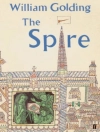In ‘The Complete Works of Jane Austen, ‘ readers are invited to delve into an unparalleled collection of wit, social commentary, and intricate character development. This anthology encompasses Austen’s six major novels, including beloved classics like ‘Pride and Prejudice’ and ‘Emma, ‘ showcasing her signature blend of irony and realism. Through sharp dialogue and keen observations of early 19th-century English society, Austen crafts narratives that explore themes of love, class, and moral complexity, making her a pioneer of the modern novel. The collection itself reflects an intricate literary context, illuminating the transition from Romanticism to a distinctly British form of literary realism. Jane Austen (1775-1817) emerged from a close-knit family in the Hampshire countryside and had limited formal education, yet her keen insights into human behavior and social mores were profoundly influenced by her experiences and surroundings. Austen’s ability to critique and reflect societal norms through her characters’ journeys reflects her acute awareness of gender constraints and her own desire for autonomy, shaping her narratives into timeless examinations of personal integrity and societal expectations. This comprehensive collection is an essential read for both casual readers and scholars alike, inviting one to appreciate the elegant prose and enduring relevance of Austen’s work. The wit, humor, and depth in her narratives ensure that ‘The Complete Works of Jane Austen’ remains a treasure trove of insights into human nature and a testament to Austen’s unparalleled legacy in literature.
About the author
Jane Austen (1775-1817) is one of the most revered novelists in English literature, known for her incisive social commentary and pioneering role in the development of the domestic novel. Her works, often set among the British landed gentry, are remarkable for their wit, well-crafted plots, and vivid portrayal of early 19th-century English society. Austen’s keen understanding of human nature and her subtle critique of the class structure and gender roles of her time have earned her novels a timeless relevance and a central place in the literary canon. ‘The Complete Works of Jane Austen’ encapsulate her literary prowess, featuring beloved titles such as ‘Pride and Prejudice’, ‘Sense and Sensibility’, ‘Mansfield Park’, ‘Emma’, ‘Northanger Abbey’, and ‘Persuasion’. Austen’s writing is distinguished by her use of free indirect discourse, a narrative technique that allows for a fluid movement between the narrator’s voice and characters’ thoughts. Although Austen’s works were originally published anonymously or under the pseudonym ‘A Lady’, her identity as an author became widely known posthumously, with her novels gaining greater critical and public attention throughout the 19th and 20th centuries. Today, Austen is celebrated not only for her literary achievements but also for her contribution to the evolution of the modern novel.












